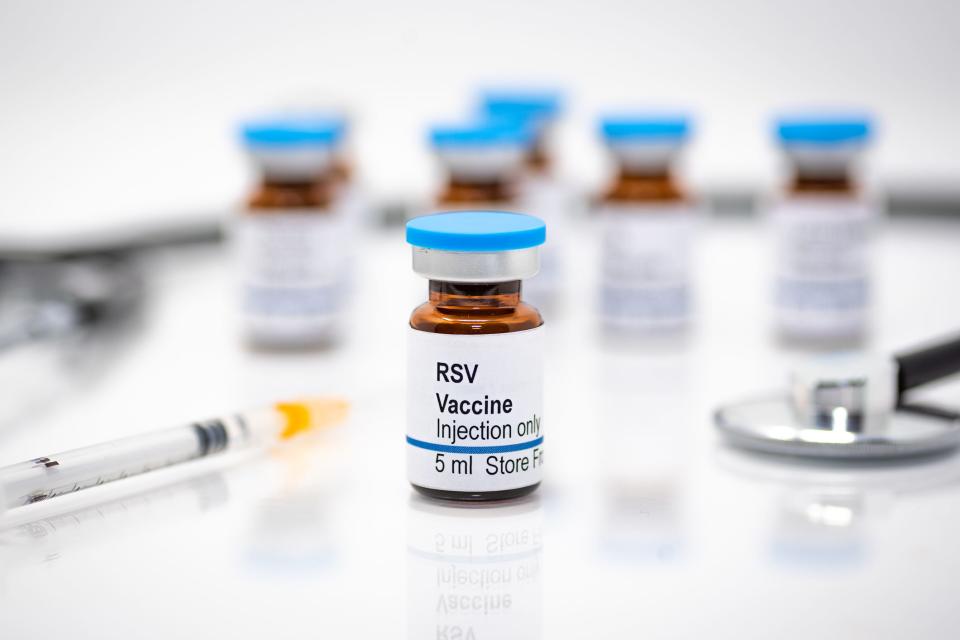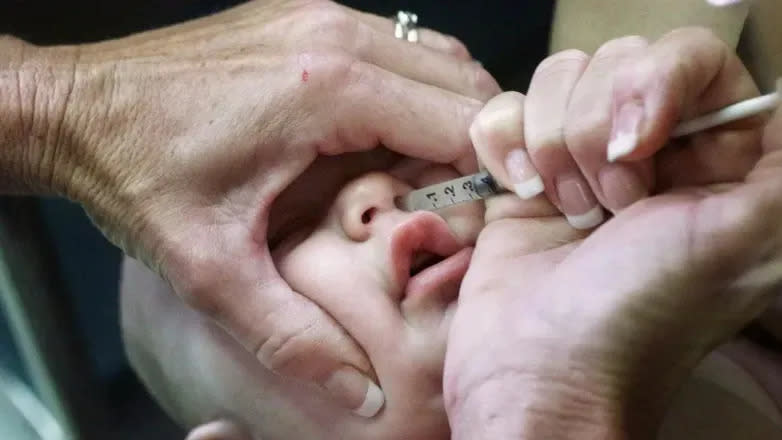Tennessee hospitals rationing new treatment against a dangerous infant respiratory disease
Correction: An earlier version of this story incorrectly characterized the monoclonal antibody treatment currently in short supply.
Children's hospitals in Tennessee are rationing a new treatment that protects against RSV, the leading cause of infant hospitalization in the U.S., amid a nationwide shortage of the drug.
The monoclonal antibody called Beyfortus (known scientifically as nirsevimab-alip) is approved for use in children up to 2 years old to protect them against the potentially deadly respiratory ailment. Drug manufacturer Sanofi Pasteur Inc. in a press release last week blamed the shortage on "unprecedented demand" for the treatment.
Pediatric health centers in Nashville, Memphis and Knoxville all reported extremely short supplies of Beyfortus this week. All said they were providing the treatment only to those infants at the highest risk for complications.
Before the shortage became apparent, public health agencies were encouraging it for all infants before the RSV season, which starts in the fall and peaks in the winter months. Between 58,000 and 80,000 U.S. children under the age of 5 are hospitalized for RSV every year, according to the Centers for Disease Control and Prevention. A few hundred of them die.

"Unfortunately, we're having major supply issues. We have very little," said Dr. Nick Hysmith, an infectious disease specialist at Le Bonheur Children's Hospital in Memphis. "I don't know the exact number of vials we have but I can tell you that we have very little in-house right now, which is pretty common from hearing from other hospitals in the cities as well."

According to the Centers for Disease Control and Prevention, monoclonal antibody treatments provide “passive immunity” by delivering protective antibodies from outside the body. Vaccines, by comparison, provide “active immunity,” in that they trigger the body to produce its own antibodies, according to the CDC.
Common symptoms of RSV include runny nose, decreased appetite, coughing, sneezing, fever and wheezing. In more serious cases, the virus can lead to bronchiolitis, in which the small airways in the lungs are inflamed, and pneumonia, according to the CDC.
The CDC issued rationing guidelines last month, prioritizing infants younger than six months and those with underlying health conditions that put them at higher risk for respiratory complications.
An existing treatment for RSV, palivizumab (whose brand name is Synagis), is only recommended for babies born prematurely who are also younger than six months, and/or who have certain serious health conditions. It also must be taken monthly. Beyfortus only needs to be taken once per season.
Elizabeth Humphreys, executive director of pharmacy at the Monroe Carell Jr. Children's Hospital at Vanderbilt University, notes that another option is available for pregnant women who are about to give birth. They can be vaccinated and pass on that protection against RSV to their newborns. That drug, called Abrysvo, won FDA approval this summer and is widely available.
"So, if moms are expecting and they're nervous about it because they're going to deliver during RSV season they need to talk to their OB/GYN," Humphreys said. "That product, as we understand, is readily available and it would be a great way to protect a baby that has not yet been born."
This shortage in the new monoclonal antibody treatment comes as RSV cases are already starting to rise quickly in Tennessee, according to CDC surveillance of testing.
But doctors interviewed for this story say, despite the shortage, there is little reason for the public to panic. This year is likely to be similar to previous years' RSV seasons when universal treatments were not available, they said.
"We're expecting a lot of patients to have RSV to seek treatment at the hospital and hopefully, in time, as there's more availability this will prevent more babies from getting RSV," said Dr. Suzanne Rybczynski, chief medical officer at East Tennessee Children’s Hospital in Knoxville. "As soon as we can get enough supplies that all the children can get, it'll be great."
Frank Gluck is the health care reporter for The Tennessean. He can be reached at fgluck@tennessean.com. Follow him on X (formerly known as Twitter) at @FrankGluck.
Want to read more stories like this? A subscription to one of our Tennessee publications gets you unlimited access to all the latest political news, plus newsletters, a personalized mobile experience, and the ability to tap into stories, photos and videos from throughout the USA TODAY Network's daily sites.
This article originally appeared on Nashville Tennessean: Tennessee hospitals rationing treatment protecting infants against RSV

